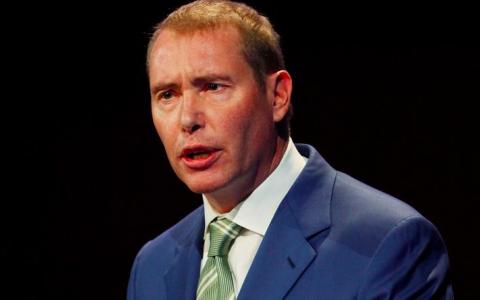
(TheStreet) It has been almost impossible to lose money this year. Unless you happened to be long volatility, odds are you had a positive return. If you tracked an index, you had a spectacular year; the S&P returned nearly 30% and the Nasdaq almost 40%. These numbers are even more phenomenal when you factor in that the omnipresent theme of the year was hemming and hawing about the economy cratering due to the trade war, and experts and pundits making constant forecasts of a recession.
None of these worries have been correct, and if you gave them credence you missed out on exceptional returns. These erroneous prophecies were predicated on two pessimistic macro predictions: either there were calls for recession in the face of economic data that was consistently solid throughout the year. Or there was uncertainty that manifested in negativity surrounding U.S. and China trade negotiations.
But an economy that slows from 3% to 2% growth isn’t in a recession, and the negative-interest-rate global landscape corrupts the inverted yield curve that sparked much of the scare. And at this point, to try and predict the unpredictable that is Trump decision making with respect to China should be self-evidently fruitless. Here are some of the most prominent experts that couldn’t have been more wrong on the state of the market in 2019:
Jeffrey Gundlach
Gundlach’s interest rate analysis is often sagacious, but his market forecasts could not have been more inaccurate in 2019. Gundlach made calls at the end of 2018 and doubled down in 2019 that we were in the midst of a bear market. He reiterated his assessment in March that “the stock market was and still is in a bear market” and could have negative returns in 2019. He used rationale such as Bitcoin’s decline being an irrational canary in the coal mine that presented the same mania-like characteristics that precipitated other recessions. Gundlach said his best idea for 2019 was “capital preservation” and in June 2019, he was still sounding a “run for cover” tone by saying there is a high chance of recession and to go long gold.
Stanley Druckenmiller
Druckenmiller conspicuously sold stocks and went into Treasurys in May when Trump sent out Chinese trade-related tweets about tariff increases. His thought process was exclusively related to trade-war jitters and a belief that tariffs -- aggressive negotiating tactics that they are -- had damaged the U.S. economy. To his credit, he didn’t prognosticate any directionality in doing so, but just pulled out due to what can be categorized as trepidation surrounding trade policy. He has since admitted that he “couldn’t have been more wrong."
Larry Summers
Summers does an admirable job of couching his perpetually negative, anti-Trump economic insight in qualifiers so that it’s difficult to pin down an actionable conclusion. However it’s safe to place him in the “got 2019 wrong” group; frankly it’s appropriate to place him in the “has been getting it wrong since Trump’s election” group.
At a nadir of sorts in August of 2019, Summers described the current environment as “the most dangerous financial moment since 2009” and that “markets are now suggesting the highest risk of recession since 2011” due to trade hostilities, a hyperbolic warning that Jim Cramer prudently pushed back on. In January 2017 he stated “...I remain persuaded that markets and the economy are most likely enjoying a sugar high that will not last a year.” In June 2016 he divined that “if Donald Trump is elected, I would expect a protracted recession to begin within 18 months.” I could go on with more examples of patently incorrect Chicken Little-like speculation, but these examples exemplify them well enough. Shockingly, Summers surmises strong odds for a recession in 2020, too.
On a positive note -- and I say this as an honest observer and not someone trying to be ingratiating to the founder of this publication -- Jim Cramer has routinely reassured throughout the year that economic conditions were stable and to not attempt to dance around capricious Trump saber-rattling or macro predictions and to simply own good companies. An investing mindset that saw past the day-to-day consternation and reflexivity-laden insight of pundits served you well in 2019. Here’s to 2020.



